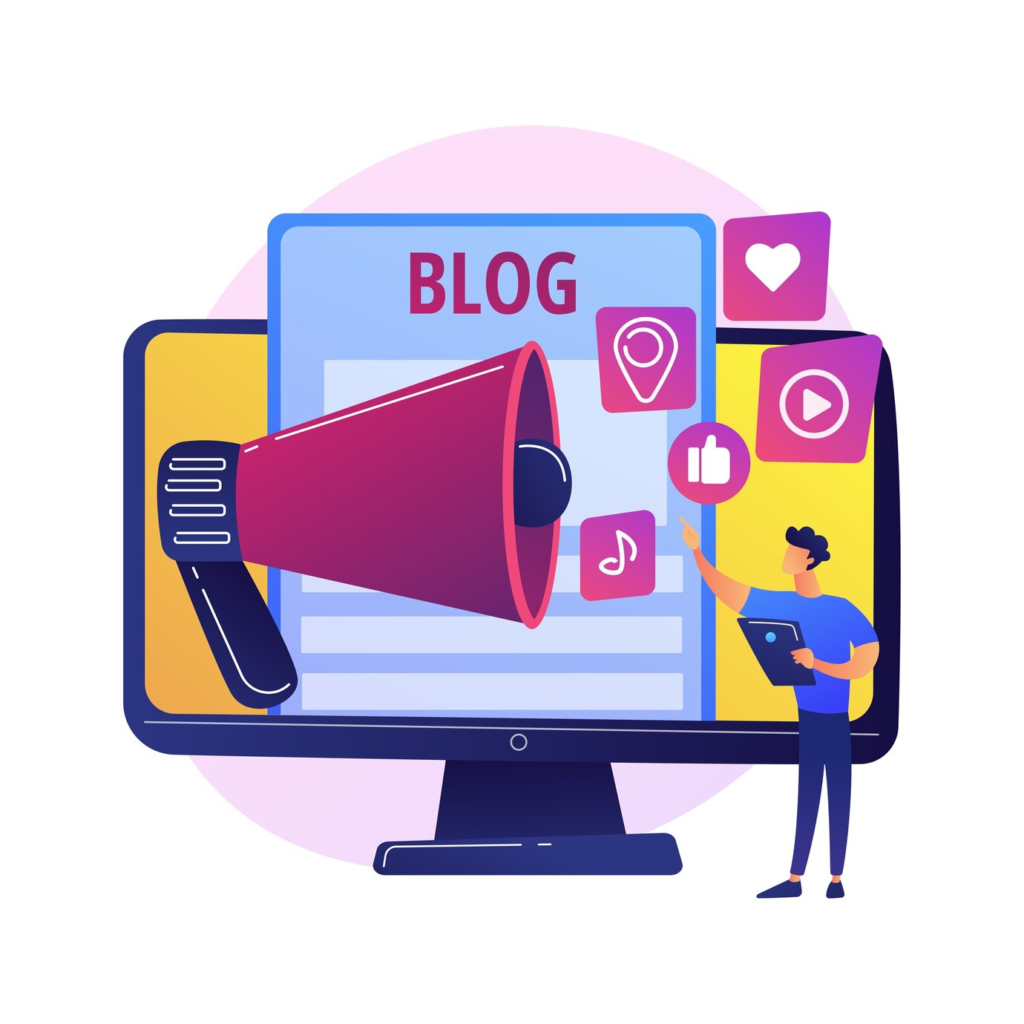Introduction to B2B Content Marketing Trends
B2B content marketing has become an indispensable strategy for businesses looking to engage with their target audience effectively. Over the years, the landscape of content marketing has evolved, reflecting advancements in technology, shifts in consumer behavior, and the increasing need for brands to build trust and credibility in their respective industries. As we approach 2025, it is essential for enterprises to stay abreast of emerging trends that can influence their content marketing strategies.
The importance of keeping up with B2B content marketing trends cannot be overstated. In a competitive business environment, organizations that adapt quickly to changes are more likely to achieve their objectives. Monitoring industry developments enables businesses to leverage new techniques, tools, and platforms that enhance their content marketing efforts. This proactive approach allows companies to tailor their messaging and strategies to meet the evolving expectations of their audience.
Furthermore, the rapid pace of technological advancements has introduced new content formats and distribution channels, necessitating businesses to continuously refine their marketing tactics. For instance, the increased usage of artificial intelligence, data analytics, and personalized content underscores the importance of targeted outreach. Companies that embrace these innovations will find themselves better positioned to connect with potential clients and foster lasting relationships.
In this dynamic environment, B2B marketers must also pay close attention to consumer behavior, which is constantly shifting. Understanding the nuances of how audiences consume and interact with content can provide invaluable insights that inform future strategies. By acknowledging these shifts and trends, businesses stand a greater chance of not only reaching their goals but also influencing industry standards.
Increased Personalization in Content Creation
As the landscape of B2B content marketing evolves, the trend toward increased personalization is becoming paramount. Businesses are increasingly leveraging data analytics and insights to fine-tune their content strategies, ensuring that their messaging aligns with the specific needs and interests of distinct target segments. This shift is revolutionizing the way companies connect with their audiences, allowing for tailored content experiences that resonate more deeply.
The integration of advanced tools and technologies plays a critical role in enabling this personalization. Solutions such as customer relationship management (CRM) systems, marketing automation platforms, and AI-driven content recommendations facilitate a comprehensive understanding of buyer personas. By analyzing user data, businesses can discern patterns in preferences and behavior, which in turn informs the development of personalized content. For instance, using insights from past interactions, a company can deliver customized white papers, case studies, or even blog posts that address specific pain points faced by different segments of their audience.
The benefits of increased personalization in B2B content cannot be overstated. Research indicates that personalized marketing campaigns outperform non-personalized approaches significantly, enhancing engagement rates and driving conversions. Companies employing personalized content are better positioned to forge stronger connections with their prospects and clients, leading to improved customer loyalty and retention rates. Moreover, personalization aids in establishing a brand as a trusted resource, enhancing its credibility in the industry.
Industry leaders are already reaping the rewards of these strategies. For example, organizations that utilize tailored email marketing campaigns report higher open and click-through rates, as they are more relevant to the individual recipient. Similarly, companies that implement dynamic web content that adjusts to user behaviors and preferences are witnessing improved user experiences. As this trend continues to gain momentum in 2025, businesses that embrace content personalization are likely to enjoy a competitive edge in the B2B landscape.
Growing Importance of Video Content
In the evolving landscape of B2B content marketing, the significance of video content is increasingly recognized. Businesses are leveraging video as a powerful communication tool, allowing them to convey complex information in an easily digestible format. As the demand for engaging, visually appealing content continues to rise, B2B marketers are adapting their strategies to incorporate a variety of video formats to enhance audience engagement and comprehension.
One prominent type of video content is webinars, which provide an interactive platform for sharing expertise and fostering direct engagement with potential clients. These live or recorded sessions allow businesses to delve deep into specific topics while offering opportunities for audience interaction, making them a valuable resource for building brand authority. Coupled with informative presentations, webinars can effectively demonstrate a company’s knowledge and commitment to industry advancements.
Another effective format is explainer videos, which provide concise and clear explanations of products or services. These videos can significantly simplify complex ideas and make them more relatable to potential customers. By illustrating key features and benefits in an engaging manner, explainer videos can improve conversion rates and help prospects make informed decisions.

Case study videos also play a crucial role in B2B marketing, as they provide real-world examples of how products or services have positively impacted other businesses. Sharing customer success stories through video not only serves as social proof but also fosters trust by showcasing tangible results. Highlighting collaboration with satisfied clients adds to the credibility of a brand.
To produce compelling video content, businesses should focus on storytelling, ensuring that their videos resonate with their target audience. Utilizing high-quality visuals, clear narratives, and targeted messaging are essential elements that can contribute to the overall effectiveness of video marketing efforts. As the trend of video content continues to grow, B2B marketers must prioritize this medium to remain competitive in capturing audience attention and fostering deeper customer relationships.
Integration of AI and Automation
In recent years, the integration of artificial intelligence (AI) and automation has marked a significant turning point in the landscape of B2B content marketing. As businesses strive to produce high-quality content while maintaining efficiency, AI tools have emerged as essential resources that assist in content creation, curation, and distribution. These advancements are fundamentally reshaping how brands engage with their audiences and optimize their marketing strategies.
One of the most notable applications of AI in content marketing is the use of natural language processing (NLP) technologies and machine learning algorithms. These tools can analyze vast amounts of data to identify trending topics and understand audience preferences. Consequently, marketers can create more targeted and relevant content that resonates with their prospects. Furthermore, AI-powered platforms can assist in drafting articles, generating headlines, and even producing personalized email campaigns, significantly reducing the time and effort required for these tasks.
Automation also plays a crucial role in the distribution of content. By utilizing automated scheduling tools, marketers can ensure that their content is released at optimal times, enhancing visibility and engagement. This systematic approach not only broadens the reach of marketing efforts but also allows for data-driven adjustments based on real-time analytics. For example, AI can monitor engagement metrics and suggest improvements, thereby streamlining the overall content strategy.
In addition to content creation and distribution, AI elevates customer experiences by offering personalized interactions. Chatbots and virtual assistants, powered by AI, provide instant support and relevant information to potential clients, facilitating a seamless path through the buyer’s journey. This integration of AI not only improves customer satisfaction but also enhances retention rates, as clients feel heard and valued throughout their touchpoints with the brand.
Overall, the incorporation of AI and automation into B2B content marketing is proving to be a powerful driver of efficiency and effectiveness. By leveraging these technologies, businesses can craft sophisticated marketing strategies that not only resonate with their audience but also adapt to the ever-changing digital landscape.
Emphasis on Thought Leadership and Expertise
In the evolving landscape of B2B content marketing, thought leadership has emerged as a pivotal trend that organizations must embrace to establish their authority and differentiate themselves from competitors. Brands that succeed in creating and disseminating high-quality, insightful content position themselves as trusted sources of knowledge within their industries. This credibility not only attracts potential clients but also fosters long-term relationships based on trust and respect.
To achieve a successful thought leadership strategy, organizations should focus on producing well-researched content that addresses the pain points and interests of their target audience. One effective approach is to leverage expert interviews, as these can provide unique insights and bolster the content’s credibility. By showcasing perspectives from industry leaders and experienced professionals, brands can offer valuable information that resonates with their audience. This collaboration not only enhances the depth of the content but also amplifies its reach, as featured experts may share the content with their own followers, expanding its visibility.
Additionally, integrating current research findings and relevant industry insights is crucial for establishing authority. Brands can invest in original research, surveys, or case studies that highlight trends and challenges faced by their clients, subsequently sharing these discoveries in their content. By citing reputable data and analytics, organizations can lend weight to their arguments, thereby enhancing their position as thought leaders.
Moreover, creating diverse content types—such as white papers, webinars, podcasts, and blogs—can further maximize engagement and provide varying formats for audiences to consume content. This multi-faceted approach allows brands to cater to different learning preferences, ensuring that they reach wider audiences with their expertise. In sum, by prioritizing thought leadership through strategic, high-quality content creation, B2B organizations can solidify their identities as industry authorities and cultivate trust among their target markets.

Enhanced Focus on Data-Driven Marketing
In the evolving landscape of B2B content marketing, the emphasis on data-driven decision-making is becoming increasingly pronounced. Organizations are recognizing the critical importance of leveraging analytics tools to inform and refine their strategies. By systematically tracking performance metrics, audience behavior, and the return on investment (ROI) of content initiatives, marketers can make informed decisions that enhance overall effectiveness.
To establish a robust data-driven approach, businesses should start by identifying key performance indicators (KPIs) that align with their objectives. These KPIs serve as measurable values that assess the success of various content marketing efforts. Common KPIs in B2B marketing include website traffic, lead generation, engagement rates, and conversion rates. By monitoring these indicators, companies can gain valuable insights into what content resonates with their target audience and how well they are achieving their goals.
Utilizing advanced analytics tools provides marketers with in-depth data to guide their strategies. For example, tools like Google Analytics and HubSpot can track user interactions and behaviors on websites, shedding light on which types of content attract and retain visitors. Furthermore, by analyzing demographic data, businesses can tailor their content to meet the specific needs and preferences of their audience, ultimately driving more effective engagement.
Incorporating A/B testing is another effective strategy for data-driven marketing. This approach allows marketers to experiment with different content formats, headlines, or calls to action and evaluate their performance against established KPIs. Through these tests, marketers can identify the most impactful elements and refine their content strategies accordingly, ensuring a heightened relevance and effectiveness. As B2B organizations continue to embrace data-driven marketing, the ability to adapt and optimize content based on analytical insights will be crucial for success in 2025 and beyond.
Sustainability and Ethical Marketing Practices
In recent years, sustainability and ethical marketing practices have emerged as pivotal considerations for B2B companies aiming to connect meaningfully with their audience. As consumers become increasingly aware of environmental and social issues, businesses are recognizing the importance of aligning their content marketing strategies with these growing expectations. Adopting sustainable practices not only reflects a company’s commitment to social responsibility but also enhances its overall brand reputation.
One of the primary benefits of integrating sustainability into B2B content marketing is the opportunity to build stronger customer relationships. Clients are more likely to engage with brands that demonstrate a proactive approach to environmental stewardship and ethical practices. By incorporating sustainability into storytelling, companies can illustrate how their products or services positively impact society and the environment. This narrative not only informs potential customers about a brand’s values but also fosters trust, which is essential in B2B transactions.
Moreover, sustainable marketing can be advantageous in differentiating a company from its competitors. As more businesses adopt similar marketing strategies, those that prioritize ethical practices and environmental sustainability will naturally stand out. This distinction can attract a niche market that values sustainability, subsequently leading to enhanced customer loyalty. In turn, loyal customers are more likely to advocate for the brand, contributing to a positive reputation through word-of-mouth referrals in the B2B sector.
Additionally, companies embracing sustainability can benefit from increased operational efficiency. The processes involved in adopting eco-friendly practices, such as reducing waste or optimizing supply chains, often lead to cost reductions. These savings can further be highlighted in marketing efforts, showcasing a responsible approach to business that resonates with cost-conscious clients.
Incorporating sustainability and ethical marketing practices into B2B strategies is no longer an option but a necessity. As we move toward 2025, businesses that prioritize these values will not only help create a better world but also gain a significant competitive edge in their markets.
The Shift Towards Interactive Content
As the B2B marketing landscape continues to evolve, a notable trend is the increasing emphasis on interactive content. Businesses are recognizing that engaging their audience through quizzes, polls, and infographics can significantly enhance user experience. Interactive content not only captures attention but also encourages participation, making it a powerful tool for fostering brand loyalty and increasing engagement metrics.
One of the primary advantages of utilizing interactive content is its ability to boost dwell time on websites. Unlike static content, which can often lead to quick exits, interactive elements keep prospective clients engaged for longer periods. This extended interaction provides companies the opportunity to communicate their brand message more effectively. Moreover, businesses can gather invaluable data on customer preferences and behavior through interactions, allowing for more tailored marketing strategies.
Creating effective interactive content requires strategic planning. First and foremost, marketers must understand their target audience’s interests and pain points to design content that resonates with them. For example, a well-crafted quiz can not only offer entertainment but also provide insights into the audience’s specific challenges or needs. Additionally, polls can be utilized to gauge opinions on industry trends, offering businesses a chance to show they value customer input.
Several successful campaigns have already showcased the potential of interactive content in B2B marketing. For instance, an IT solutions provider launched a series of interactive infographics that illustrated complex data in a digestible manner. This not only improved user engagement but also positioned the company as a thought leader in its field. By embracing such innovative formats, businesses can create memorable experiences that differentiate them in a crowded marketplace.
In conclusion, the shift towards interactive content within B2B marketing signifies a growing understanding of audience engagement dynamics. By leveraging these formats, companies can enhance their marketing efforts and create deeper connections with their customers.
Conclusion: Preparing for the Future of B2B Content Marketing
As we look ahead to 2025, the landscape of B2B content marketing is poised for transformation. The trends discussed throughout this blog post underscore the necessity for businesses to stay agile and responsive in an ever-evolving marketplace. Key insights reveal that adopting innovative technologies, such as artificial intelligence and data analytics, will be crucial in enhancing content personalization and effectiveness. Brands must leverage these tools to create targeted content that resonates with their audiences, thereby fostering deeper connections and driving engagement.
Moreover, the increasing importance of visual content cannot be overlooked. Businesses should prioritize the integration of infographics, videos, and interactive elements into their content strategies to capture the attention of their audience effectively. This shift toward visual storytelling aligns with changing consumer preferences, making it essential for marketers to adapt accordingly. By embracing diverse content formats, companies can elevate their narratives and present their value propositions more compellingly.
Furthermore, sustainability and ethical marketing practices are becoming critical considerations in B2B content strategies. As consumers grow more conscious of corporate social responsibility, it is vital that brands transparently communicate their values and sustainability efforts. This authenticity will not only enhance brand loyalty but also establish trust as a cornerstone of customer relationships.
To remain competitive in 2025 and beyond, businesses must proactively adopt these trends and remain open to experimenting with new strategies. Continuous evaluation of content marketing efforts will allow for timely adjustments and improvements, ensuring relevance in a dynamic environment. In this rapidly changing landscape, organizations that prioritize adaptability and innovation in their B2B content marketing strategies will be best positioned to succeed.




